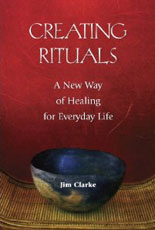"Life-cycle changes, especially within family structures, are enormously complicated affairs and can be fraught with conflicting emotions. For this reason, many cultures have created ritual celebrations to guide their people through these transitions. Welcoming a baby home is a perfect opportunity to create a ritual for the child and to honor the changes that will take place in the family structure and dynamics. In this case, the ritual can serve as an embodied reminder that things will indeed be different for everyone concerned. Participation by all members of the family household is key to the success of such an acceptance ritual. This might be especially pertinent, for example, when welcoming a foster child or a newly adopted child into the family. There is a clear need here for a communication dynamic that assists in the unpacking of any conflicted feelings and beliefs within the original family structure.
"The first day of school represents a change of mythic proportions. At first glance, this event appears rather modest in the overall context of a person's life. Let's look carefully, however, at what this change implies. Parents hand over the larger part of the education and socialization of their child to an institution. This signifies that the parents are stepping aside and inviting the larger community into the formation of this little person's life. It is now a collaborative effort, not limited to the home environment. For the child's part, he or she will be introduced to a larger community of friends and acquaintances that will, for better or worse, influence his or her values and happiness. He or she will never be the same again. Surely, this event deserves recognition and celebration!
"What symbol(s) might be chosen to represent the underlying feelings on the part of the participants in the event? What words need expression? What dramatic action could enhance this moment of transition for the child and the family? Who should assist in the planning and participate in the ritual event? When and in what setting ought this ritual to occur? It might be exciting to think about the possibilities for your family or extended family.
"There are numerous possibilities for ritual expression of movements within adolescence, even before the progression to adulthood is addressed. One thinks of the time of a girl's first period or a boy's first shave. A teenager learning to drive a car or beginning his or her first regularly paying job is a wonderful moment of clarity about personal and social responsibility. I remember one of my younger brothers having a high-school driving instructor who saw the possibility to reframe this time into a transformative moment for his students by incorporating driving instruction into the larger narrative of life. He drew parallels between driving a vehicle on a state highway and moving along the highway of life. His preparatory questions about 'how do you want to get to your destination,' 'what do you need to be mindful of,' 'which way will you take,' and 'who will accompany you' formed part of the discussion before each lesson. At the conclusion of the final lesson, he then ritually expressed the transitional moment by handing the car keys to the student, with the words: 'These are the keys to your life.' These performative words highlighted the dramatic action and meaning of the handing over of the keys. His students never forgot this experience; I know my brother never did. This is the mark of effective ritual: Transformation took place, as measured by the participants' response and interior affirmation."
